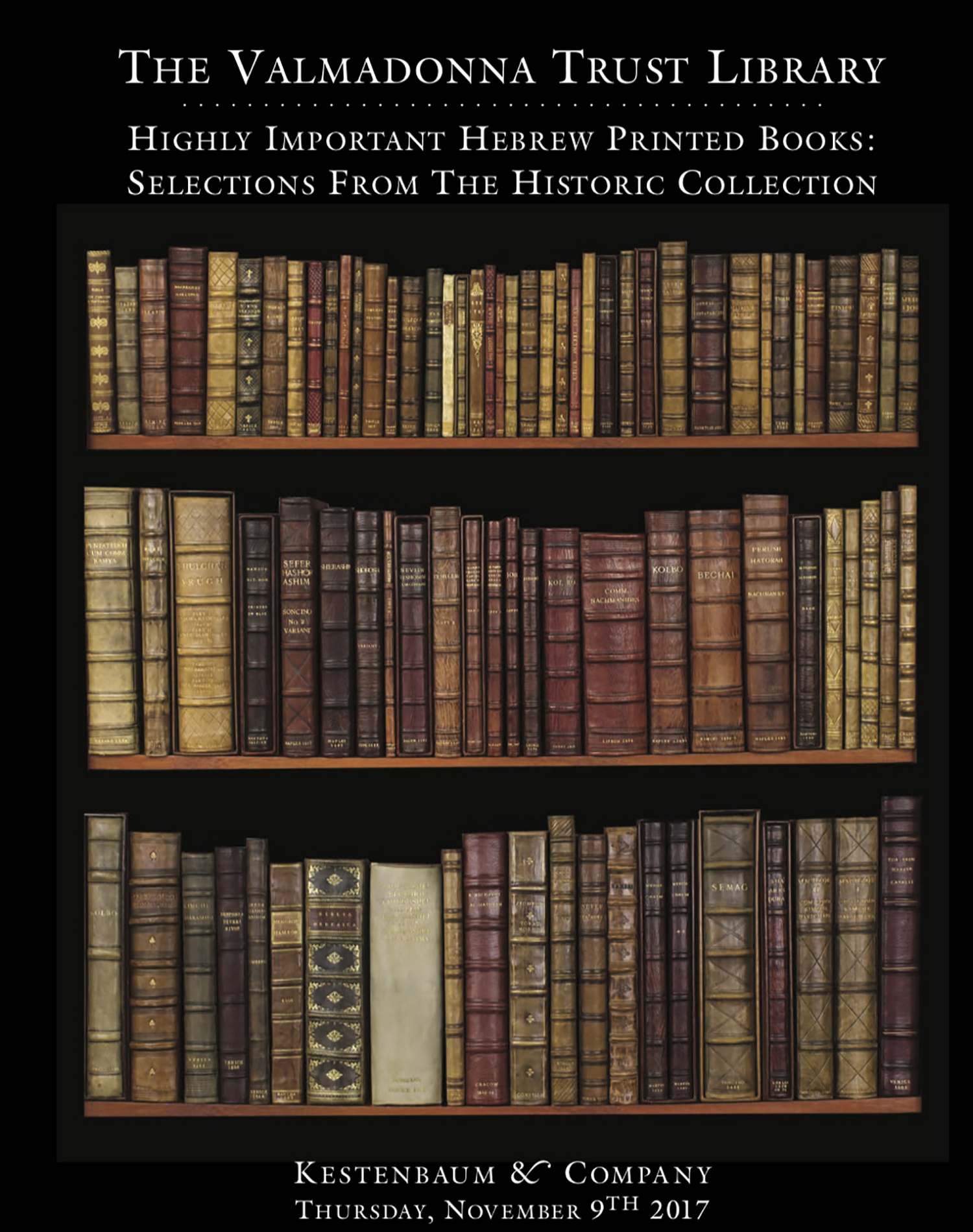Sepher HaMachbaroth LeMar Immanuel [poetry]

AUCTION 74 |
Thursday, November 09th,
2017 at 1:00
Fine Judaica: Printed Books, Manuscripts, Autograph Letters & Graphic Art
Lot 104
IMMANUEL BEN SOLOMON OF ROME
Sepher HaMachbaroth LeMar Immanuel [poetry]
Brescia: Gershom ben Moses Soncino 1491
Est: $7,000 - $9,000
PRICE REALIZED $13,000
<<The first printed book of Hebrew poetry and one of only two literary Hebrew incunabula.>>
Sepher HaMachbaroth is the most important work of Immanuel ben Solomon of Rome (ca. 1261-1328), poet, scholar and author of both Hebrew and Italian texts. Combining poetry and prose on subjects as diverse as love, wine, and friendship, with satires, epistles, elegies and religious poems, Sefer HaMachbaroth represents a unique example of the blending of traditional Jewish and secular Italian literature that characterized much of the Jewish literary output during the Italian Renaissance. With his linguistic artistry and use of skillful wordplay, Immanuel sets a tone that is generally light-hearted and witty in twenty eight chapters that combine poetry and prose on subjects as diverse as love, wine, and friendship, with satires, epistles, elegies and religious poems. In fact, Yigdal, the well-known liturgical poem based on Maimonides` thirteen principles of faith, is an abridged adaptation of a poem by Immanuel included in the fourth chapter of this work.
